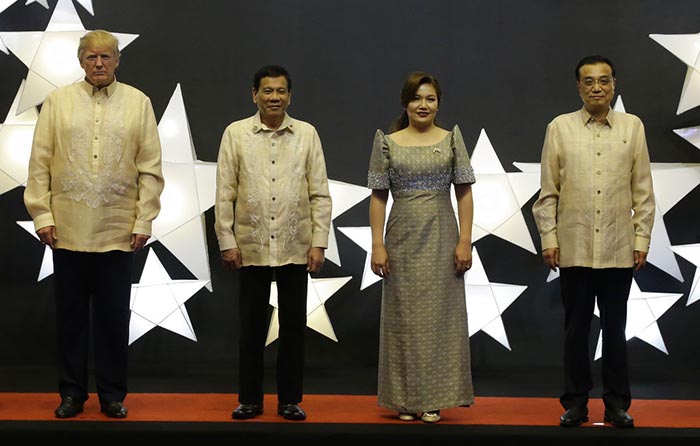
Wang Jisi, Professor at School of International Studies and Founding President of Institute of International and Strategic Studies, Peking University
Zhao Jianwei, Research Assistant, Peking University
Dec 15, 2017
China should start building a community with a shared future for mankind from the Asia Pacific.
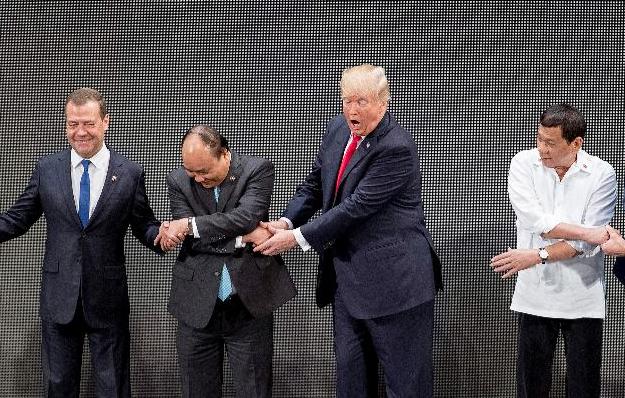
Yang Wenjing, Research Professor, Institute of American Studies, CICIR
Dec 11, 2017
Is Trump’s Asia policy really that different from his predecessors’?
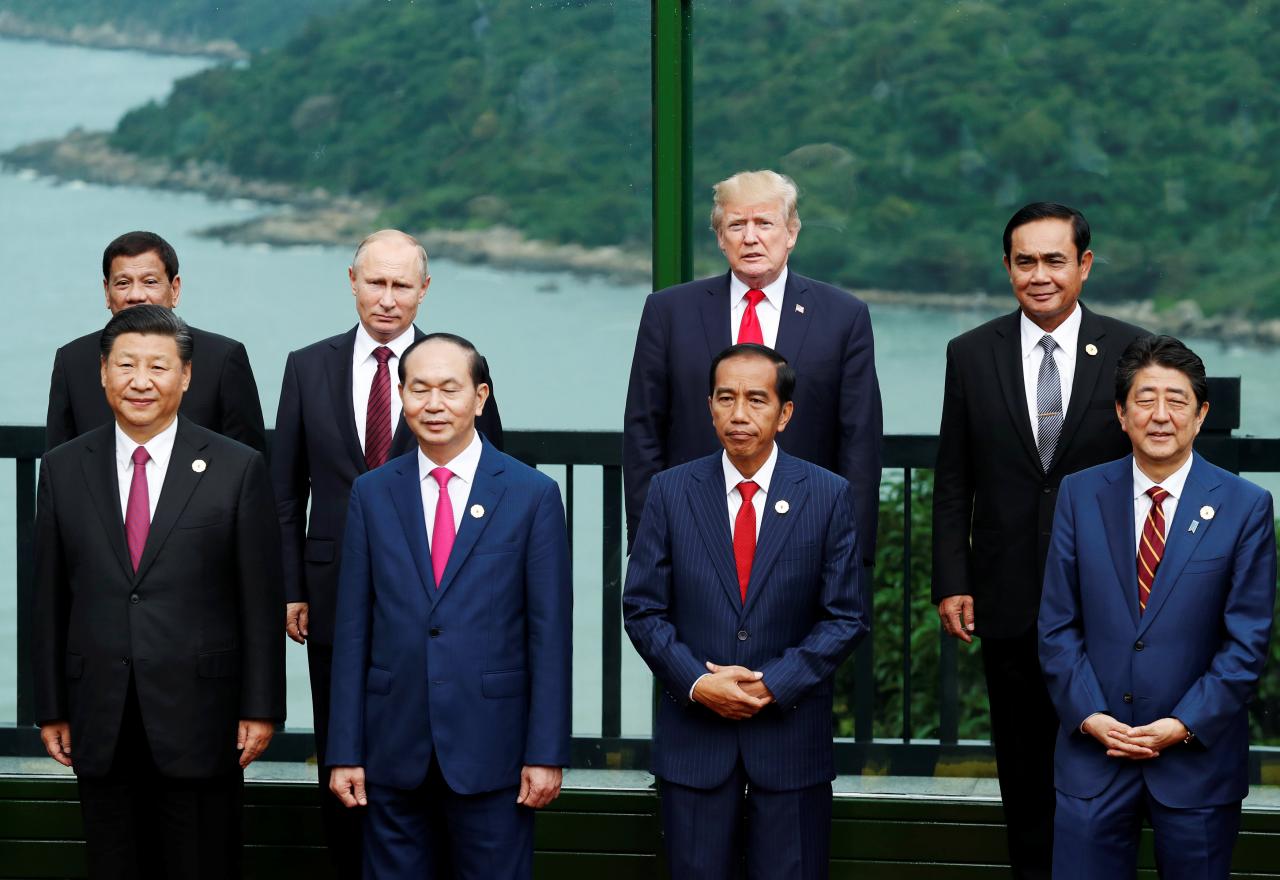
Sampson Oppedisano, Executive Assistant to the Dean, The Milano School of International Affairs, Management and Urban Policy
Dec 08, 2017
When a U.S. president goes on a tour of a region of the world, the goals can range from reassuring existing alliances, to encouraging the adoption of democratic values such as human rights, to working on building diplomatic relations and economic development. Not President Donald Trump.
Nov 23, 2017
Australia should strengthen its alliance with the US to counter growing Chinese power in the Indo-Pacific region amid tensions over maritime disputes, according to a new government report.
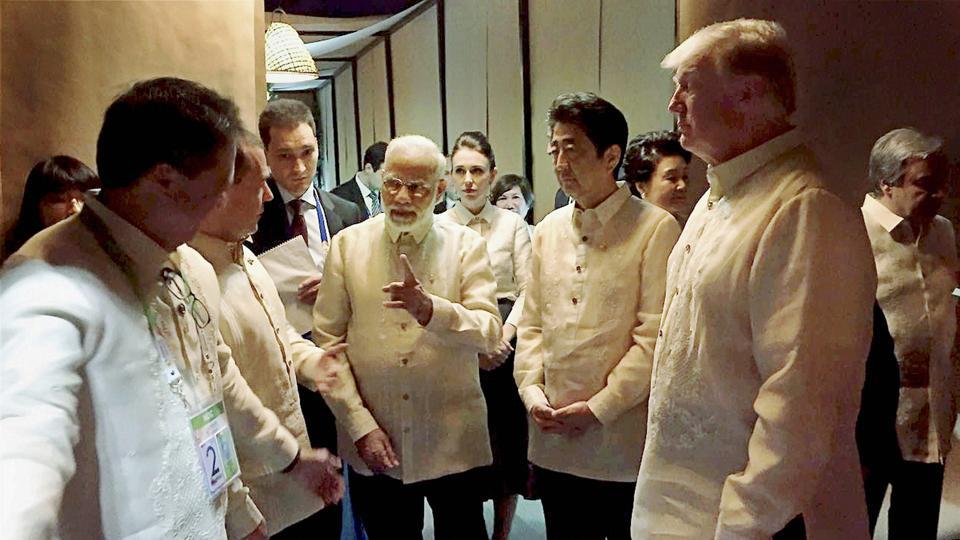
Su Jingxiang, Fellow, China Institutes for Contemporary International Relations
Nov 17, 2017
America’s attempts to contain China will fail, because, time and again, economics trumps politics.
Nov 14, 2017
Faced with a global economy in transition, we should uphold multilateralism, pursue shared growth through consultation and collaboration, forge closer partnerships, and build a community with a shared future for mankind.
Nov 07, 2017
Partners to work with India, Australia; delicate diplomacy needed for Beijing.
Nov 03, 2017
The world will be watching as America’s leader makes his first official visit to Asia, where trade deficits and military ties are likely to be among the hot topics
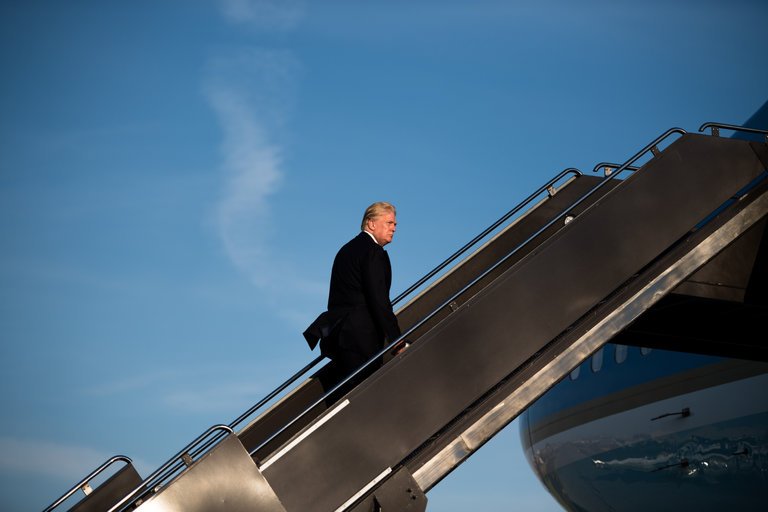
Sampson Oppedisano, Executive Assistant to the Dean, The Milano School of International Affairs, Management and Urban Policy
Nov 01, 2017
During Barack Obama’s time in office, the administration adopted a policy stance known as the ‘Pivot toward Asia’. Does the Trump Administration plan to pull back and disengage with the Asia Pacific, potentially as a way to undermine Obama’s legacy?
Oct 19, 2017
U.S. Secretary of State Rex Tillerson said before a visit to India next week that the Trump administration wanted to “dramatically deepen” cooperati
Back to Top

- China-US Focus builds trust and understanding between the U.S. and China through open dialogue among thought leaders.
- Our Offerings
- Topics
- Videos
- Podcasts
- Columnists
- Research Reports
- Focus Digest
- Stay Connected
-
Thanks for signing up!
- Get the latest stories from China-US Focus weekly.